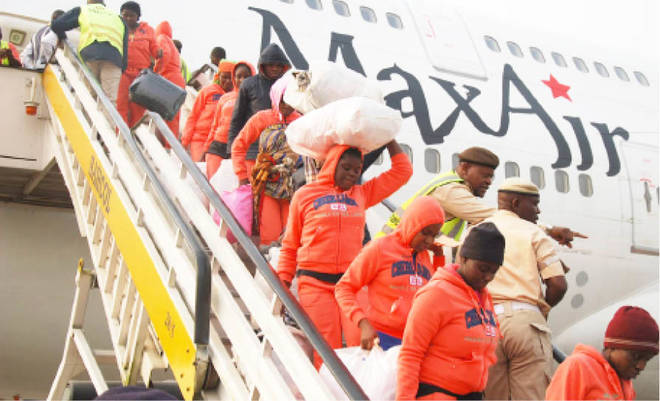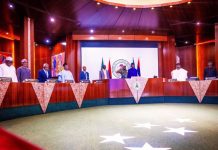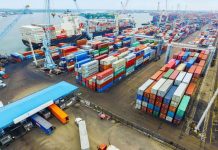The name of the game can be arbitrariness. Yes, this is what obtains any time Nigerian deportees land in the country. The relevant officials hardly have laid-down procedures to follow.
This explains why 24 Libyan returnees, who got to Port Harcourt airport over two weeks ago, are asking for immediate relocation from the airport. They are protesting against what they called their continued and uncomfortable stay at the place.
Ordinarily, the Libyan returnees were not supposed to have stayed at the airport for more than two days after arrival. The returnees, mostly youths, from Osun, Ekiti and Kwara states, lamented that their various state governments had not come to receive them more than two weeks after arriving from Libya.
Meanwhile, another 136 Nigerians stranded in Libya have been evacuated to the country.The victims, who arrived at the Port Harcourt International Airport on Tuesday, were the fifth batch to be flown home by the Federal Government. The first flight had lifted 484 and the second, 446, while the third and fourth flights lifted 560 and 465 persons.
The federal government had planned to evacuate 5,037 stranded Nigerians within 38 days. But, it was learnt that a clash between some militia groups delayed the profiling of the victims, as it resulted in the closure of the Tripoli airport.
The South-South Coordinator of the National Emergency and Management Agency, NEMA, Ejike Martins, said so far, 2,091 Nigerians have been evacuated, leaving over 2,000 stranded Nigerians in the Arab country.
Referring to the protest, Mr. Martins said, “I would not call it a protest, but somebody has the right to complain. I think the returnees felt that they had overstayed at the camp because they were seeing other state governments coming to pick their colleagues. As humans, they may have felt lonely and desired to go home too.
According to him, “The guidelines for the operation require that NEMA should receive the victims and hand them over to the state governments, which would obtain approval to evacuate their returnees. But sometimes, the procedure is slow.”


















